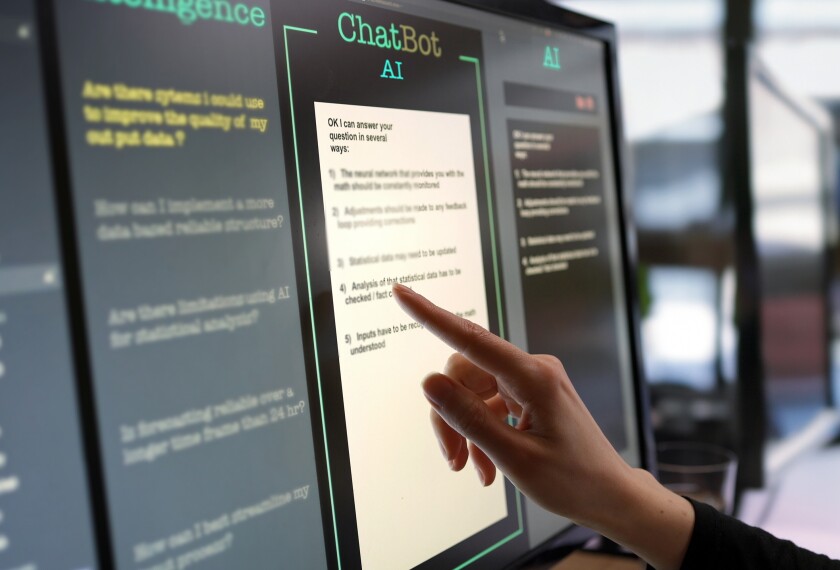It’s been a year since ChatGPT—an AI-powered tool that can seemingly answer any prompt—burst onto the K-12 scene, and teachers are slowly embracing the tool and others like it.
One-third of K-12 teachers say they have used artificial intelligence-driven tools in their classroom, according to an EdWeek Research Center survey of educators conducted between Nov. 30 and Dec. 6, 2023.
Of those who said they’ve used AI tools, 21 percent said they’ve used them a little, 10 percent said they’ve used them some, and 2 percent said they’ve used them a lot, according to the survey, which included 498 teachers.
Artificial intelligence experts have touted the technology’s potential to transform K-12 into a more personalized learning experience for students, as well as for teachers through personalized professional development opportunities. Beyond the classroom, experts also believe that generative AI tools could help districts become more efficient and fiscally responsible.
But there are challenges: Many teachers are still unfamiliar with the technology, and they are worried about students using AI tools to cheat and not knowing that the tools can produce inaccurate or biased responses.
Teachers have used ChatGPT and other generative AI tools to create lesson plans, give students feedback on assignments, build rubrics, compose emails to parents, and write letters of recommendation.
In open-ended responses to the EdWeek Research Center survey, educators who have used the technology say that it can be a very effective tool if used responsibly. Others also say that while they’ve used AI tools a little bit, they’d like to learn more about how to use them for their work and how to teach students to use them properly.
Here’s how and why some educators say they’ve been using AI tools in the classroom:
— District superintendent in Mississippi
— High school fine arts teacher in Texas
— High school English teacher in New Jersey
— High school social studies teacher in Michigan
— High school English teacher in Texas






